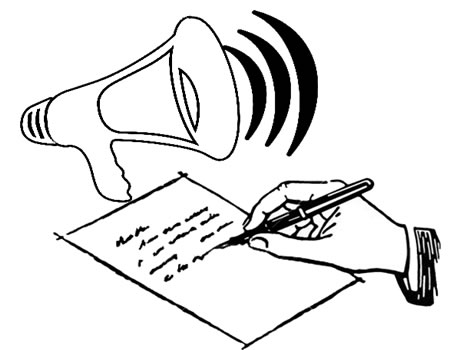AS everybody in this country can most easily see, our politics and the overall life of all of us deriving from it are deteriorating steadily. Without steady and indeed growing and well executed positive criticisms, it will continue to get worse than it has been. Hence the need for this particular discussion in this forum. Just as politics in itself is the art as well as science of promoting and working for the common good, and therefore a most sacred duty; so is political criticism. However, even though both the properly non-partisan people have such a duty, the clearly partisan politicians also have the duty to do so, internally within their parties and externally as well, whenever this will be necessary. However, the latter (the politicians’ opposition and external party criticism) stand the chance of being so obnoxiously partisan, and so, losing the ears as well as the goodwill, of their opponents; even before they had started. However, the former non-partisan political criticism also has the chance of also losing their intended audience to the extent that they deviate from the principles of such criticism. Because of these facts, it is very important to discuss these principles, so that those who do so, even the non-partisan people like us, will keep those in mind when we do so. As one wisdom statement from “the East” says, “of our unspoken words we are masters, but our spoken words are masters of us! May these be so, positively and helpfully, for those of us who do so in regard of politics! Amen.
It will also be important this wise, that we implore the other people – the partisan politicians themselves, as well as those who erroneously dislike or distance themselves entirely from all politics – to realize that political criticism is a universal duty; and that nobody should fail to take them, digest them and come to the proper decision on what positive things to do with those findings. They also have a duty to know that the purpose of political criticism is nothing else than that we may examine what is good in them and enlarge them; as well as appreciate those that are not good enough and do away with them – and as partisan politicians, whether those who do such criticisms do so entirely rightly or not.
In relation with politics universally, we say that some countries are advanced or developed, while others are not. Developed polities are so because they had developed institutions and systems that are able to take care of most undermining issues in it. Thus, no matter how bad the partisan politicians themselves try to grow – as they invariably do everywhere – there are many things in the polity to prevent them from going too far with them! Thus, people can criticize those partisan politicians most freely and almost anyhow in those countries; and nobody goes after them for their elimination – as they do in many parts of the so-called developing countries. Just look at what is happening in the USA at this point in time; or even in the UK, France or Germany!
So, coming down to those of us who provide these political criticisms, it is important for us to as often as possible let it be known that we do not hate even a single one, group or groups of partisan politicians; nor do we like some over the others. Indeed, we love them all most dearly, appreciate what they ought to be doing, whether they know or understand it or not; and would only wish that they do what they are doing better than they are currently doing – in their very primary interests but above sqwall, for the common good! We should do everything to let it be known that this is what we do, as well as from time to time remind all that this is what we are trying to do, even if not perfectly. We should therefore do our bests to point out things that have gone on well in the polity, the parties and their governments first, before we begin to delve into the “not so goods”. We should also endeavour, in doing these, to base the criticisms on well-known and/or easily verifiable facts or indeed, to provide those within those criticisms. Then, in concluding, we should do our bests to proffer the better solutions for the issues raised as much as possible or at least invite others to do so. Finally, our language in doing these should be as cordial as possible; even though, when these errors are as many as they often are in Nigeria, this will surely be very difficult to do. But we must try and keep trying to do so better with time. In all these, we must always remind ourselves of our duty to pray for all that it has pleased God to place in authority over us and to love them, according to their ranks and the seriousness of their authority or functions over us; and indeed, to do so – no matter how hard it proves to do so; and whether others appreciate these internal efforts or not!
With the level to which many things have gone wrong in the Nigerian politics, it has become necessary that as many as are educated and are disinclined from partisan politics should join this other side of politics, as positive political critics for the common good! In doing so, let us all do our bests to keep to these principles of political criticism and keep improving in them! In that way, the partisan and office seeker politicians will begin to understand the duty as well as the truly difficult task that we do; and so in spite of their own difficulties in doing so, begin to recognize us as their true friends as well as, most importantly, the universal friends of the polity as a whole. Especially, they will understand that we are not another partisan political party nor “their enemies” as is so often easy to conclude. In that way, they may dislike us less, perhaps also learn to love us and the polity as we do; so that all politics (partisan/office seeking or otherwise) will begin to attend to its original and primary end of “the greatest good for the greatest number of the polity, evenly”; a heavenly beatitude, as all Nigerians would all seem so very eager to attain! May God Himself help us in the pursuit of these ideals and make them to come to pass soon, amen.
- Asuzu is Professor of Public Health and Community Medicine at the University of Ibadan






